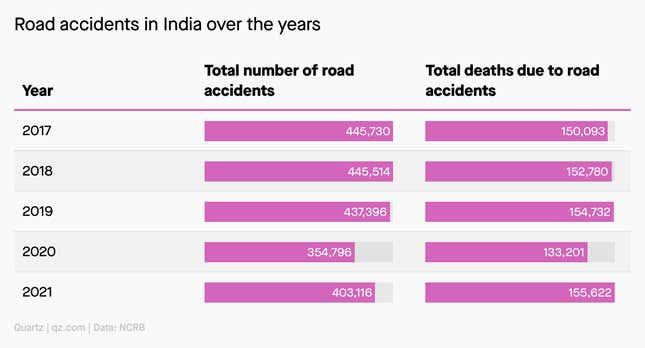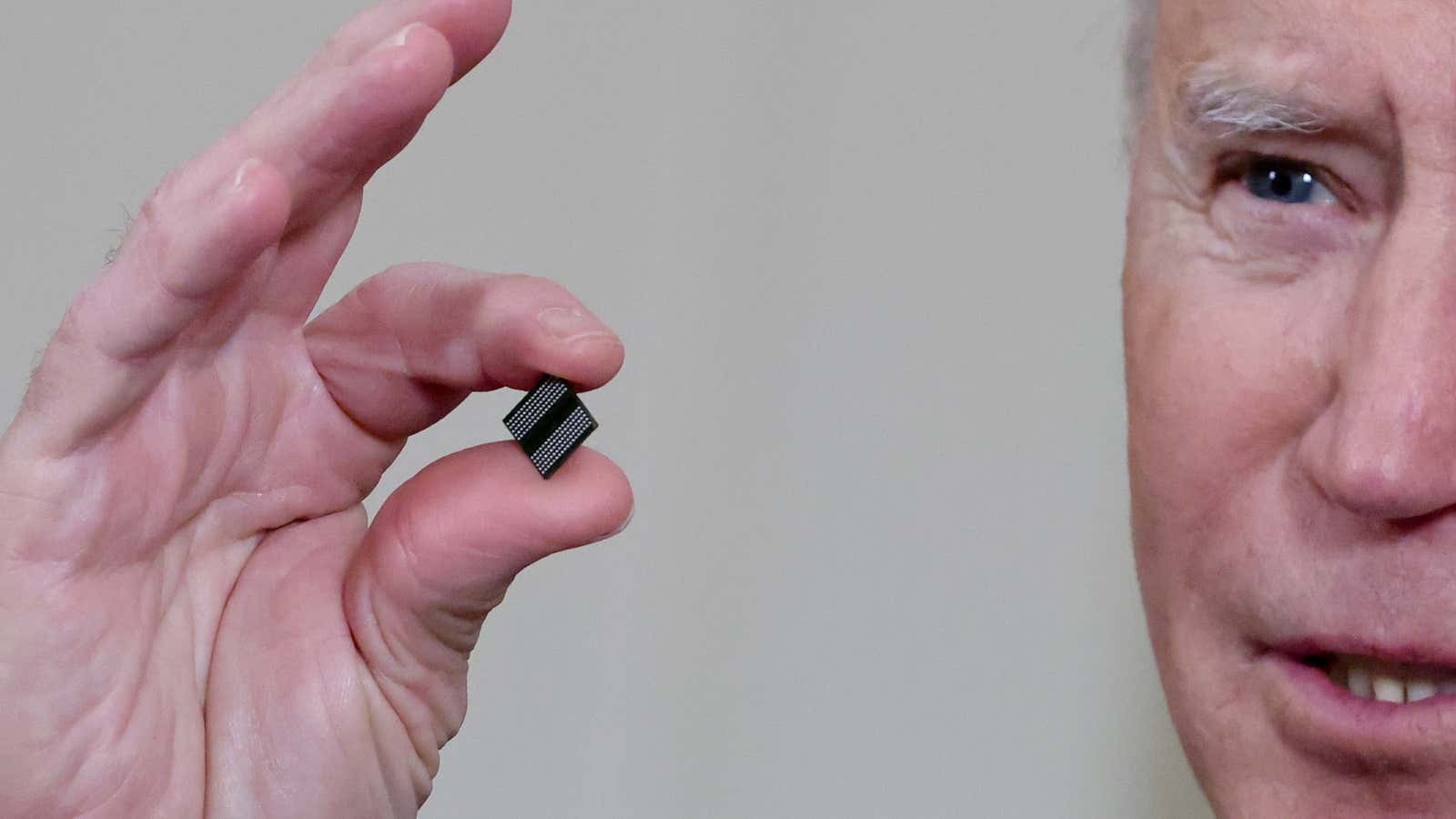Good morning, Quartz readers!
Here’s what you need to know
The Biden administration unveiled a $50 billion investment in semiconductors. The spending boost aims to develop the industry in the US, countering dependency on China.
OPEC+ announced a small cut in oil supply to the global economy. The move is meant to halt the decline of oil prices due to recession fears.
Ireland fined Instagram $403 million. The country’s privacy watchdog found the company mishandled teens’ data.
CVS won the bidding war for Signify... The drugstore chain offered $8 billion for the home healthcare company, whose suitors reportedly included Amazon and UnitedHealth Group.
…while Amazon targets the Japanese healthcare space. The e-commerce giant is mulling a partnership with small and medium pharmacies for prescription drug deliveries, reported Nikkei.
Liz Truss became the next UK prime minister. The third woman to hold the office, Truss takes the helm of a country facing a multitude of pressing challenges.
Parts of the Amazon won’t recover from deforestation. The tipping point at which the forest turns into a savannah has already been crossed in Brazilian and Bolivian parts of the rainforest.
What to watch for
Porsche could go public this fall in what would be one of Europe’s biggest IPOs. Volkswagen is expected to sign off on the IPO, but investor support will still be needed for the plan to move ahead.
Estimates of the luxury brand’s valuation are as high as $84 billion (€85 billion), and it could raise $9.9 billion (€10 billion) from listing, or even greater, though economic turmoil in Europe has some worried the debut would be untimely.
There is also concern that Porsche will lack independence from its parent company as it plans to free float just 12.5% of its total shares, and the Porsche-Piech family will claim a 25% minority stake in the carmaker.
Investor jitters aside, Porsche has emphasized that the cash raised from the IPO would be key to achieving the brand’s long-term goals (pdf). Among them: increasing the company’s global sales of fully electric vehicles to 80% by 2030.
Why are road accidents so common in India?
The death of Cyrus Mistry, one of India’s best-known business leaders, has revived a conversation around Indian roads, which are among the least safe in the world.
In 2021, India witnessed an average of 18 deaths per hour due to road accidents, according to the National Crime Records Bureau. The data further highlights that public transport is safer than private modes of conveyance.

Speeding and negligent driving are the most common reasons for fatal car rides in India, and there’s low awareness around seatbelts. Just this past February, the Indian government made three-point seat belts mandatory for all cars with front-facing passenger seats. But much more is needed for a country that has just 1% of the world’s vehicles, yet about 10% of all crash-related deaths.
Lada, the little car that couldn’t
The Lada, a Russian-made car that looks like a boxier version of the already-boxy Fiat models, was once emblematic of Soviet independence. But as the world cut off business with Russia over its invasion of Ukraine, the car has become a symbol of the country’s economic difficulties.
In our latest Weekend Brief, we looked at the history of the Lada—a car that for Russia has been an easy one to love but not an easy one to trust—and how the Lada still has influence as far as Cuba.
✦ Want exclusive access to the Weekend Brief, a weekly email that goes in-depth on one big news item? Sign up today for a membership and take 40% off, on us.
Quartz’s most popular
💬 China’s internet censors have a blindspot: Cantonese
🇿🇲 Zambia’s secret to controlling inflation and strengthening its currency
💍 HBO is fighting Amazon’s “Rings of Power” with a free episode of “House of the Dragon” on YouTube
🚫 The US should cancel a lot more than $10,000 in student debt
🌩 Microsoft’s cloud computing changes stir up a storm
👵🏼 China’s life expectancy is now higher than that of the US
Surprising discoveries
Deep-sea tourists need deep pockets. A ticket to visit the submerged remains of the Titanic cost $250,000.
An AI-generated picture won the Colorado State Fair. The victory caused controversy, but may prompt the inclusion of an AI-specific category in next year’s contest.
Growing up on a farm seems to offer protection from allergies. Scientists are looking to distill barnyard dust into a pill that could treat allergies in children.
Plastic bottles can be turned into tiny diamonds. Just blast the PET with powerful lasers.
Barack Obama is half an EGOT. The Emmy win for his narration of the Netflix documentary Our Great National Parks adds to the former US president’s two Grammy victories for his audio books.
Our best wishes for a productive day. Send any news, comments, barnyard dust, and plastic diamonds to hi@qz.com. Reader support makes Quartz available to all—become a member. Today’s Daily Brief was brought to you by Niharika Sharma, Sofia Lotto Persio, Julia Malleck, and Morgan Haefner.
